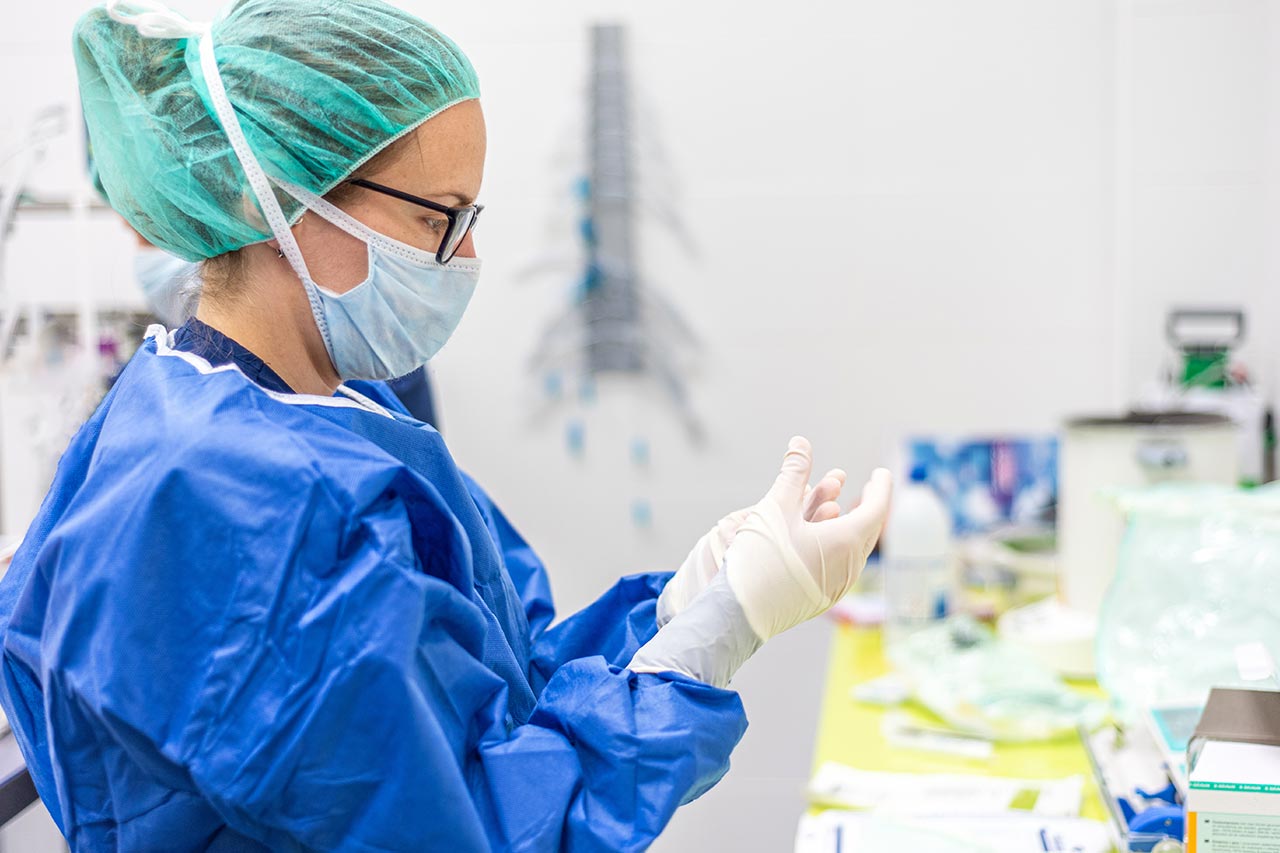Towards a hybrid multichannel approach to interactions with healthcare professionals
The global health crisis due to COVID-19 has pointed out the need to digitalize the customers’ interaction model of MSL in order to maintain a continuous relationship with healthcare professionals. The development of a strategy that supports companies to be flexible in their approach and to alternate between virtual and face-to-face meetings depending on the targeted objectives is the solution to opt for. To implement such a hybrid approach, companies therefore need to be equipped and for their employees to be trained on digital tools and new means of communication.
The digitalization of interactions between healthcare professionals and MSL present two key advantages:
- Digitalization quickens contact establishment.
- Digitalization promotes information sharing through online training or webinars. To give an example, digitalization gives the opportunity of directly presenting diverse content that may be less accessible and conveniently manageable in a face-to-face visit.
The face-to-face visit remains however a key approach which aims to support physicians in making important decisions regarding their patients. Such decisions are indeed rarely made via virtual exchanges only and require the presence of a human factor, may it be MSL or peers. Thus, despite the emergence of virtual exchanges, many healthcare professionals still remain attached to the interactivity and conviviality of face-to-face visits, which underlines further the importance of maintaining a hybrid and multi-channel approach.
An involvement of MSL from A to Z in clinical studies
To meet the needs of both medical professionals and pharmaceutical companies, MSL are increasingly required to engage healthcare professionals earlier in a product’s lifecycle. MSL are now more involved before the launch of a product in order to guarantee a complete understanding of its ecosystem, the patient journey and their pain points. The aim of this early involvement is to better prepare for the commercial launch of the product.
Moreover, originally involved occasionally in phases 3 and 4 of clinical trials, MSL engagement tends to increase from the early stages of development to late stages such as post-ATU phase (ATU: Temporary Authorization for Use, early access) and real-life studies.
MSL upstream in clinical trial
Positioned upstream in a clinical trial, MSL can now suggest topics of study to their company headquarters based on their discussions with healthcare professionals. In addition, MSL may then carry an advisory and supporting role towards the very same healthcare professionals who may also be in charge of developing these projects.
MSL in the late stage of post-ATU
MSL can also contribute to the mapping of patient journeys in order to ensure the availability of all necessary data for the assessment of healthcare technologies.
A pivotal role at the regional level
The current trend is to structure patient and care pathways, notably with the implementation of the following initiatives: reinforcement of the link between town and hospital, CPTS (Health Territorial Professional Communities) and “My Health 2022”. In this context, the knowledge of regional ecosystems becomes key in order to operate at best within their multidisciplinary approaches and complexity. The involvement of MSL thus extends from discussions with healthcare professionals to the achievement of projects such as those promoted by the 51st article (e.g. support for coordination at the local level between hospital and town actors).
With their in-depth knowledge of regional specificities and all local healthcare players (e.g. healthcare professionals, Regional Health Agencies ARS and patient associations, etc.), MSL are becoming essential players in regional healthcare ecosystems.
Moreover, thanks to their precise overview of regional challenges, MSL develop a refined understanding of the needs and expectations of each healthcare professional. Based on their understanding and considering the resources available within pharmaceutical laboratories, they offer to healthcare professionals an optimal response. This approach ultimately promotes the engagement of healthcare professionals and strengthens the quality of their relationship with MSL.
Specialization of MSL profiles towards more scientific profiles
As the healthcare environment becomes more and more complex, healthcare professionals are expressing the need for advanced discussions at the medical and scientific levels. Hence encouraging pharmaceutical companies to adapt by recruiting more scientific profiles among MSL.
It is indeed recommended for MSL to have in-depth knowledge of the therapeutic area they’re engaged in to ensure high-level medical and scientific exchanges with academics, practicing physicians and healthcare professionals. New therapeutic modalities such as gene therapy even raise the question of a strong specialization of MSL by therapeutic area rather than by indication, so that they fully master the technical and technological contents as well as their implications.
Not always possessing a scientific background and training in the past, MSL profiles are now evolving towards scientific profiles such as Master 2 or doctorate in Science, as well as degree in medicine or pharmacy. Such degrees support MSL legitimacy and scientific credibility among healthcare professionals. Indeed, the LEEM has required, in 2019, for MSL a minimum education level of five years after the baccalaureate, i.e. after high school.
By improving the scientific level of discussion, the specialization of MSL profiles contributes to better engagement of healthcare professionals.
Becoming both players in digitalization and clinical trials, driving forces at the regional level, and high-level scientific representatives, the future of MSL lies in the growth of their activities. Thus, considering the diversification of MSL roles in France, pharmaceutical companies must rethink the strategic positioning of MSL in order to increase the engagement of healthcare professionals before and after products’ launch. By promoting scientific profiles and considering a multi-channel approach, for example.
About the author
Cécile, Consultant in Alcimed’s Healthcare team in France



